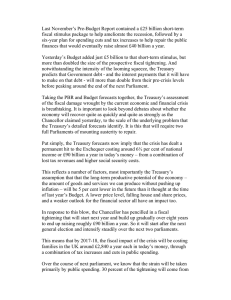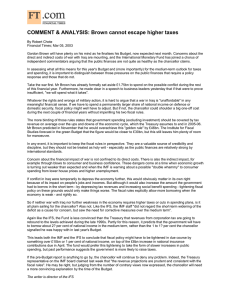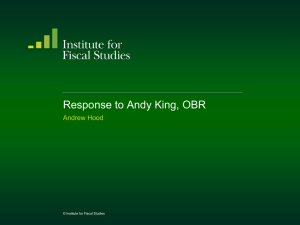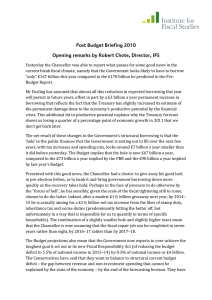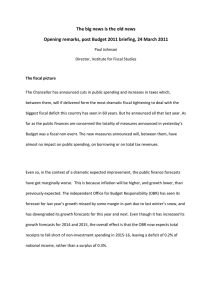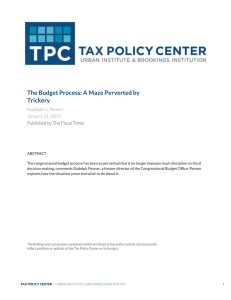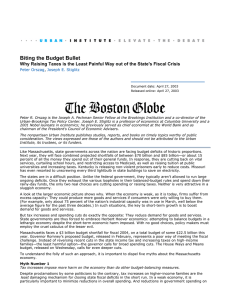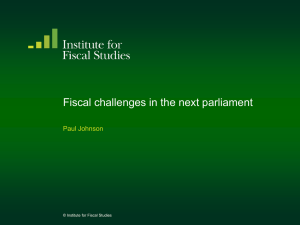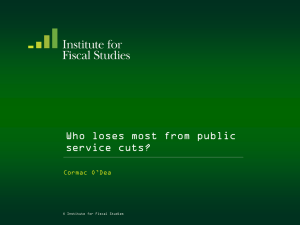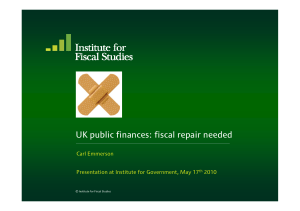Some initial reactions to the 2009 Pre- Budget Report Public finances
advertisement
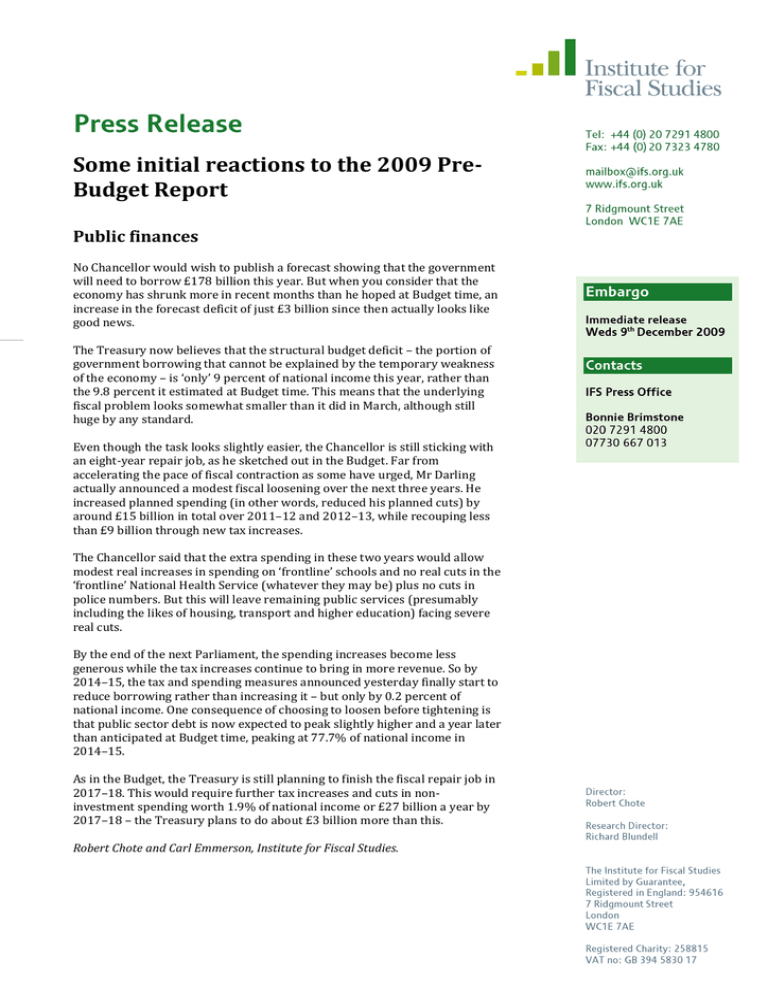
Some initial reactions to the 2009 PreBudget Report Public finances No Chancellor would wish to publish a forecast showing that the government will need to borrow £178 billion this year. But when you consider that the economy has shrunk more in recent months than he hoped at Budget time, an increase in the forecast deficit of just £3 billion since then actually looks like good news. The Treasury now believes that the structural budget deficit – the portion of government borrowing that cannot be explained by the temporary weakness of the economy – is ‘only’ 9 percent of national income this year, rather than the 9.8 percent it estimated at Budget time. This means that the underlying fiscal problem looks somewhat smaller than it did in March, although still huge by any standard. Even though the task looks slightly easier, the Chancellor is still sticking with an eight-year repair job, as he sketched out in the Budget. Far from accelerating the pace of fiscal contraction as some have urged, Mr Darling actually announced a modest fiscal loosening over the next three years. He increased planned spending (in other words, reduced his planned cuts) by around £15 billion in total over 2011–12 and 2012–13, while recouping less than £9 billion through new tax increases. The Chancellor said that the extra spending in these two years would allow modest real increases in spending on ‘frontline’ schools and no real cuts in the ‘frontline’ National Health Service (whatever they may be) plus no cuts in police numbers. But this will leave remaining public services (presumably including the likes of housing, transport and higher education) facing severe real cuts. By the end of the next Parliament, the spending increases become less generous while the tax increases continue to bring in more revenue. So by 2014–15, the tax and spending measures announced yesterday finally start to reduce borrowing rather than increasing it – but only by 0.2 percent of national income. One consequence of choosing to loosen before tightening is that public sector debt is now expected to peak slightly higher and a year later than anticipated at Budget time, peaking at 77.7% of national income in 2014–15. As in the Budget, the Treasury is still planning to finish the fiscal repair job in 2017–18. This would require further tax increases and cuts in noninvestment spending worth 1.9% of national income or £27 billion a year by 2017–18 – the Treasury plans to do about £3 billion more than this. Robert Chote and Carl Emmerson, Institute for Fiscal Studies. Benefit increases Even though September's inflation rate was negative, the Government today announced a 2.5% rise in the state pension from April 2010, and a 1.5% rise in some other benefits, including child benefit, disability living allowance, carers allowance and incapacity benefit. But the 1.5% rise, costing £700m, is set to be only temporary, as the Chancellor committed himself – or rather, his successor – to increase these same benefits by 1.5% less than inflation this time next year. Mike Brewer, Institute for Fiscal Studies ENDS

